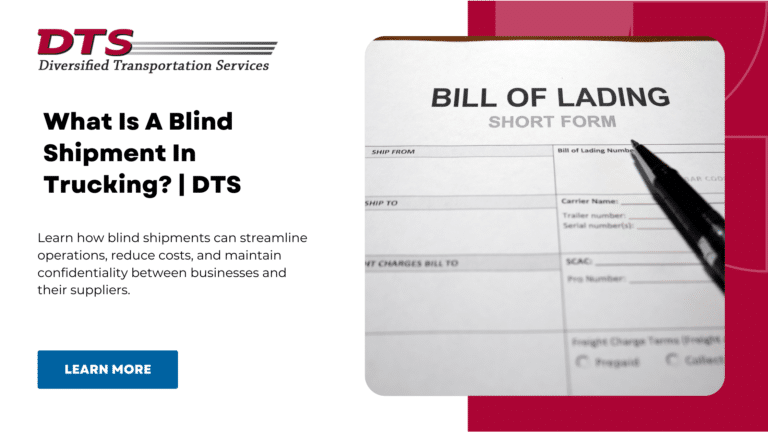
Have you been in this situation? You get an order for a specialty item only available from a specific manufacturer. Normally, you’d have the manufacturer ship the item to your warehouse, and then you’d send it out to your customer. But in this case, the order is urgent, and your customer needs their shipment fast.
The best option would be to ship the item directly from the manufacturer to your customer — but you don’t want to potentially lose your customer by revealing your supplier.
A blind shipment would be the ideal solution in this situation. But what are blind shipments, and how do they work? Let’s take a look.
In traditional logistics, goods are shipped from a producer to a warehouse, where they are stored until they’re sold. However, businesses sometimes opt for direct shipments from the manufacturer to the customer. This approach, known as drop shipping, can reduce delivery times and save on costs. But what if you don’t want the customer to know their order came directly from your supplier? That’s where blind shipments come in.
A blind shipment in trucking involves sending an order directly from the manufacturer to the customer while concealing the manufacturer’s identity. Blind shipments allow businesses to keep their suppliers confidential or work with third-party vendors without revealing that they didn’t ship products directly.
Double-blind shipments take this a step further by obscuring both parties’ information. This ensures customers remain unaware of the supplier’s details and the supplier doesn’t know the customer’s identity. This extra level of confidentiality can help companies maintain strong business-customer relationships and prevent suppliers from trying to engage directly with customers.
While blind shipments are more direct, they require more planning than traditional shipments. Here’s how the blind shipping process works:
If that sounds a bit complicated to manage, consider working with a freight broker for blind shipments. A freight broker or third-party logistics provider (3PL) can help you manage blind shipments and handle the additional planning required.
Blind shipments offer several key advantages in supply chain management, especially for businesses that want to streamline operations and protect sensitive information. Here are the main benefits:
These benefits make blind shipments attractive for businesses focused on efficient supply chain management, cost savings, and protecting customer relationships.
Partnering with a third-party logistics company helps streamline the blind shipment process, allowing you to focus on more important business. They can also help with other shipping processes that may be too complex for your in-house shipping team or handle the whole shipping process for businesses without a dedicated shipping team.
DTS is powered by logistics professionals with over 30 years of experience and over 2 million shipments under our belts. We are committed to providing our clients with the best service possible and will always go above and beyond to help.
Contact DTS today to get a quote tailored to your specific shipping needs!
Whether you're a company looking to improve one facet of your supply chain, your entire supply chain, or simply looking for a transportation and logistics consultation, we can help.